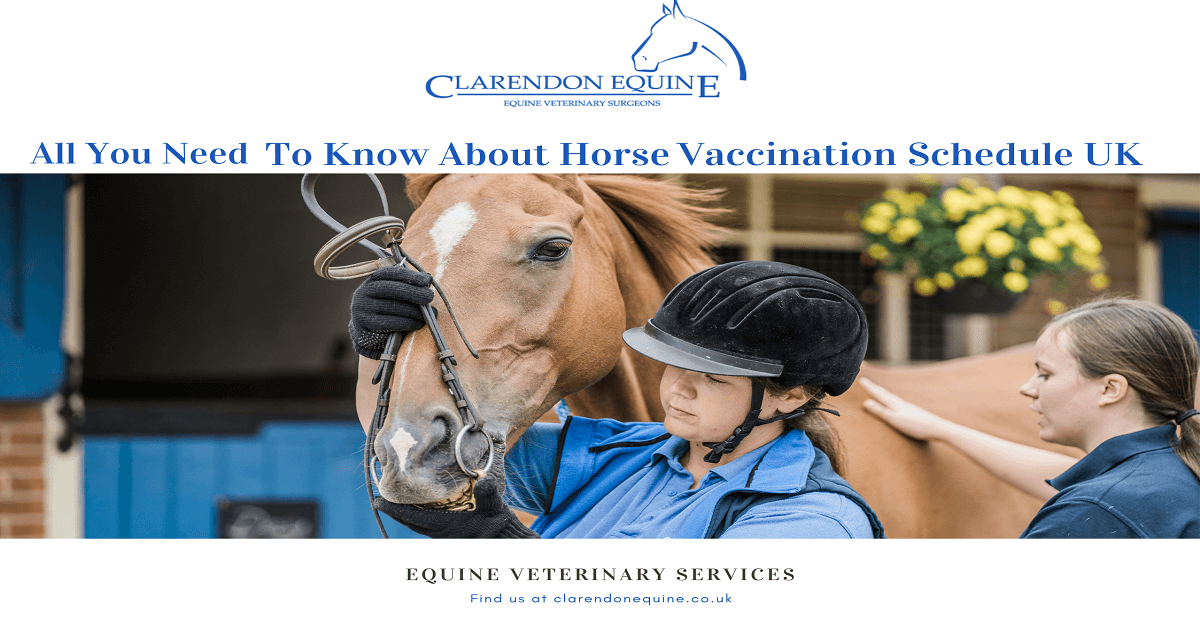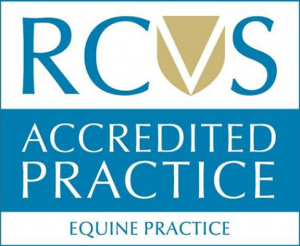Vaccinations should always be done often to prevent serious and potentially life-threatening diseases. In the UK, our equine vets recommend that all horse, donkey and pony owners vaccinate their equine animals against equine influenza, tetanus and, if you have a herd, equine herpes virus(EHV).
What happens if I don’t vaccinate my horse?
Preventing and saving your horse from coming in contact with a multitude of diseases is just one of the reasons why you should vaccinate your horse. For example, failing to show that your horse is vaccinated at a competition may cost you severe penalties, going as far as to ban your horse from future events.
Competition horse owners must make sure that their horse or pony is vaccinated according to the rules set by the designated sporting authority. Although each organisation is quite different from another and has varying rules, you may be asked to present your passport at any time during the event. Our equine vets are more than happy to offer you the advice you require, check and update the vaccination record before the competition.
Which Vaccinations Does My Horse Need And How Often?
Your equine animals should get vaccinated against the following diseases:
Equine Herpes Virus
The equine herpes virus happens to be the most common virus contracted by horses worldwide, including the UK. There are two common types of this virus, which are EHV-1 and EHV-4. EVH-1 causes potentially life-threatening respiratory diseases in young horses and foals, abortion in pregnant mares and paralysis in most horses. EHV-4, on the other hand, occasionally causes abortion and low-grade respiratory diseases in some.
It is recommended to give vaccination to horses that are over 5 months old. This is a two-dose vaccination and requires the 2nd to be given 4-6 weeks after the first dosage. After 6 months, equine vets will provide an annual booster.
The equine herpes vaccination can be given to horses over the age of 5 months old. This is a two-dose vaccination, with the 2nd being 4-6 weeks after the first. A booster is then required 6 months later.
Equine Influenza/Flu
Equine influenza, or flu, is a virus that affects the respiratory system in horses, causing them to have a high fever, severe coughing and a very runny nose. Although it is never seen as a fatal disease, it only takes a couple of days of ignorance to make it life-threatening. Over the past couple of months, the percentage of disease outbreaks amongst unvaccinated animals have increased.
The equine influenza flu is a three-way vaccination. The first of the three vaccinations should be given to horses over 5 months old. Your equine vet will administer the second one, which should be given at least a month or two later after the initial dose. Then, the third vaccination has to be given 4-6 months after the second. Lastly, an annual booster has to be provided following the third dose.
But, most of the time, the vaccination for flu and tetanus are given as a combined vaccine.
Tetanus
Tetanus is one of the diseases that can end up causing critical damage to your horse, sometimes even death. It is the production of a bacteria commonly known as Clostridium tetani.
Tetanus vaccinations are made of two shots of vaccinations. The two vaccinations are given throughout the course that’s generally 4-6 weeks apart, following an annual booster in 12 months.
Usually, when mares give birth, the foals receive a tetanus antitoxin immediately. Even though the mare passes down antibodies through the colostrum, the antitoxin acts as extra protection. Vaccinations for horses against tetanus begin when they are over 5 months old.
However, if you have a horse that isn’t vaccinated and gets injured, your equine veterinarian must give a tetanus antitoxin right away to prevent a tetanus infection. After the initial antitoxin, your horse should get started with the routine vaccination.
Some Final Words
Vaccinations are an essential step to keeping your horse fit and healthy throughout its lifespan. Unvaccinated horses tend to disease with immeasurable pain, and sometimes the cases get so bad that equine veterinary practices have to euthanise them.
If you are curious about the vaccinations within your area, consult our equine vets directly. We also offer half price zone visits throughout Essex, which you can find more information here.
If this blog helped you, consider checking our other blogs.







